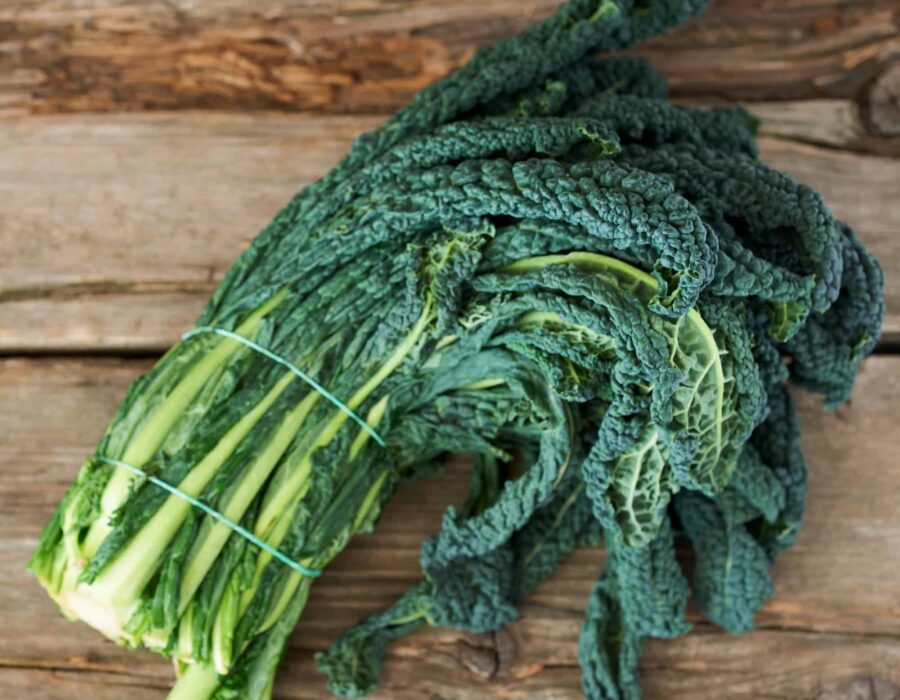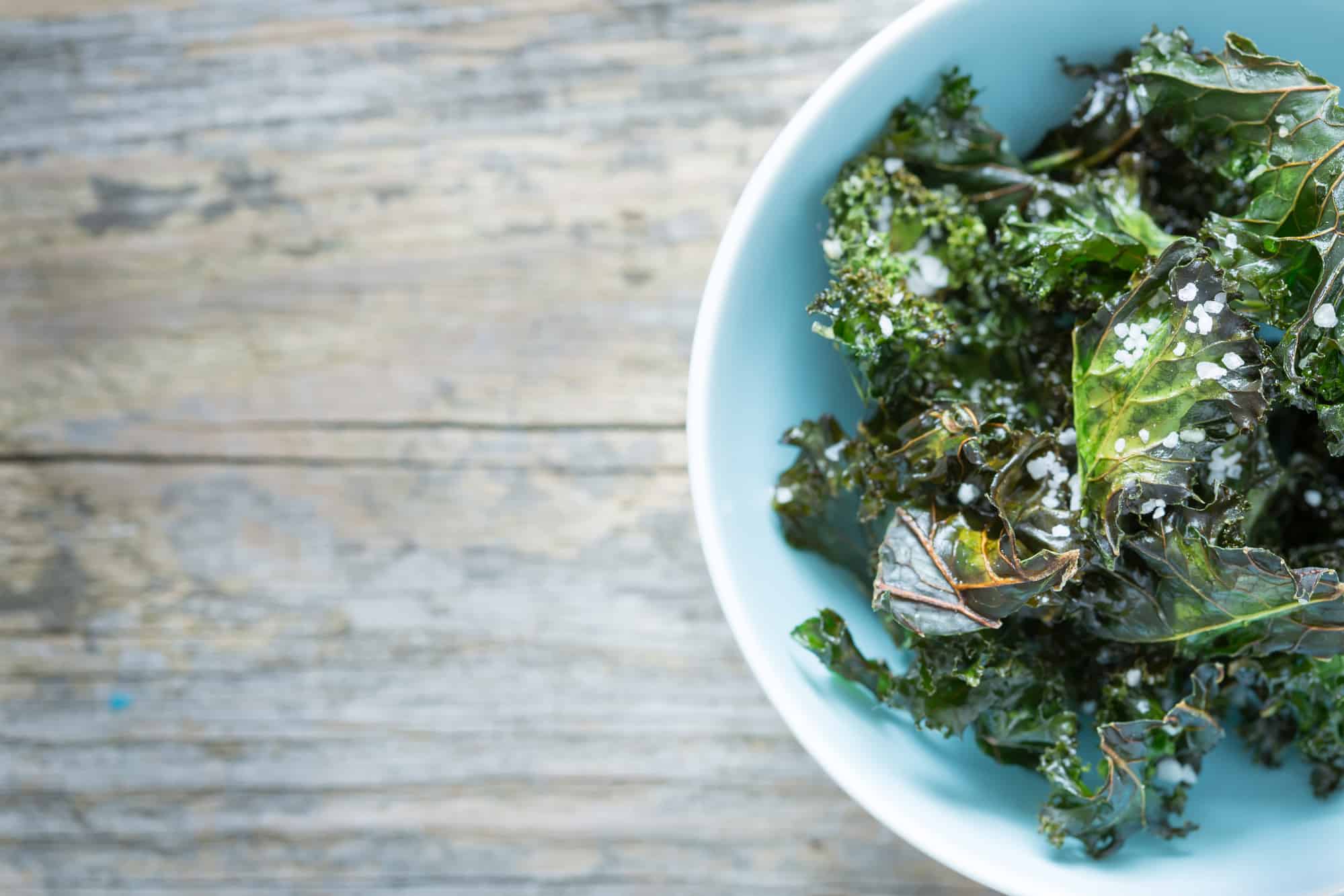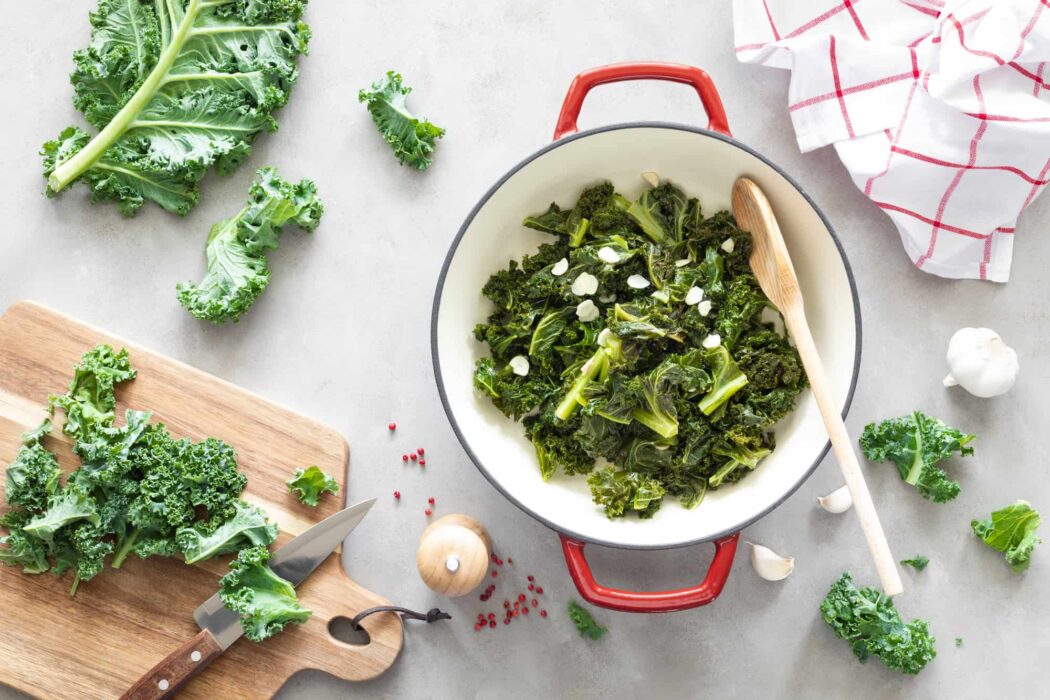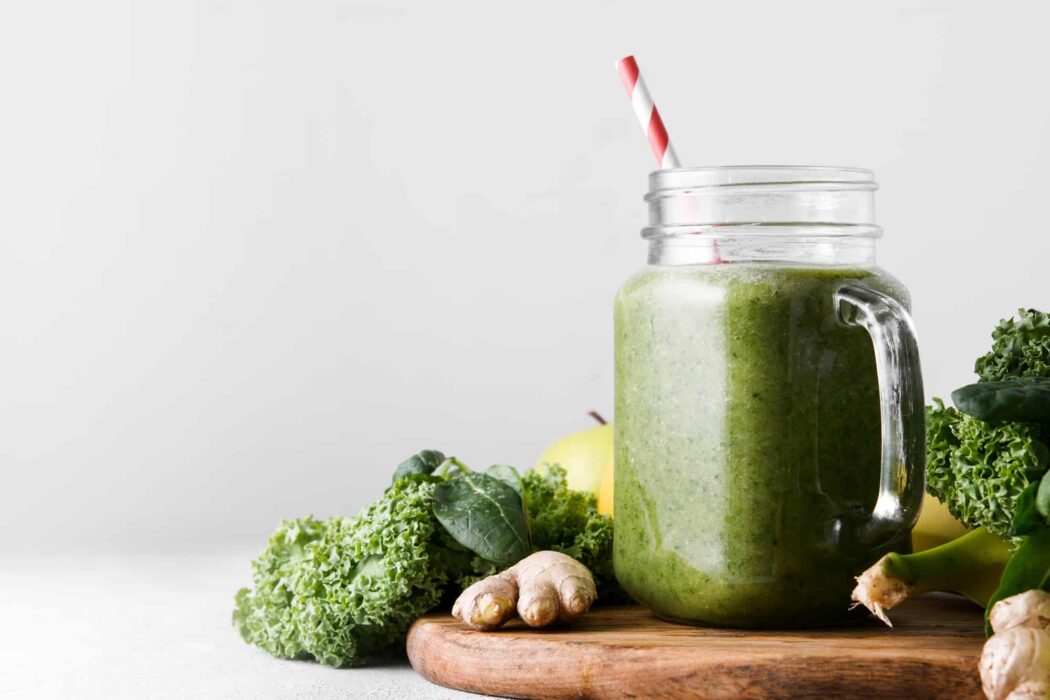You have probably heard about kale as one of the superfoods that bring great benefits to your health. Nutritionists recommend including this vegetable in your healthy lifestyle menu. Besides, kale is a green leafy vegetable. Does that mean it’s suitable for a low-carb diet? Is kale keto?
Yes, kale is definitely keto. It contains a minimum amount of carbs and many useful elements for your health. You can eat kale without restrictions during the keto diet, adding it to various dishes to get enough fiber.

In this article, we will discuss all your questions in detail. How many carbs are in kale? What is the nutritional value of kale? What are the health benefits of kale? Why is it a superfood? Let’s figure it out together!
Is Kale Keto?
As you may have guessed, kale is keto, and you can eat it in any quantity. However, let’s discuss its nutritional facts. So, 100 grams of kale contain:
- 28 calories
- 1.9 grams of protein
- 0.4 grams of fat
- 6 grams of carbohydrates
- 2 grams of fiber
- 4 grams of net carbs.
Thus, one cup of kale contains about 1 gram of net carbs. When you’re wondering what vegetables to eat on keto, there’s one simple tip. All green vegetables are keto, be it spinach, broccoli, celery, Brussels sprouts, etc. And leafy green vegetables contain the lowest amount of carbs, and you can consume them without restrictions.
Kale Health Benefits
Kale is not just called a superfood. It really has a lot of vitamins, minerals, and nutrients. It contains vitamins A, B1, B2, B6, K, C, and PP. Also, this vegetable has a large number of amino acids and minerals: sodium, magnesium, calcium, and phosphorus [1]. It is enough for you to eat only 200 g of kale leaves per day to saturate the adult body with the necessary daily norm of vegetable protein.
Carbs in Potato: Tasty Keto Potato Chips Alternatives
Let’s look at the benefits of these elements in more detail.
Vitamin A
Vitamin A or retinol is one of the vital vitamins for our body, belonging to the group of fat-soluble vitamins. It takes part in oxidative and healing processes and affects protein synthesis. In addition, vitamin A is necessary for the formation of the skeletal system, teeth and for the growth of new cells. It also slows down the aging process.
The normal functioning of the immune system largely depends on vitamin A. It is necessary for the full repair of tissues. It accelerates skin regeneration, stimulates collagen production, and reduces the risk of infections.
Vitamin B1
Vitamin B1 (thiamine) is vital for the proper functioning of the body. It ensures the normal activity of the nervous, cardiovascular and muscular systems. It is also important for various metabolic processes and carbohydrate metabolism [2].
Like other B vitamins, vitamin B1 is important in producing energy from carbs and fats found in food. It can support a positive mental attitude, prevent memory loss, improve learning ability, fight stress, and increase energy. Also, vitamin B1 can prevent cataracts, obesity, and metabolic disorders. It plays a central role in energy metabolism, and its deficiency impairs almost every important function in the body. As a result, vitamin B1 deficiency affects the nervous, cardiac, and digestive systems.
 Vitamin B2
Vitamin B2
Vitamin B2 (riboflavin) is essential for healthy carbohydrate and lipid metabolism. In addition, it provides energy from fats and carbs. It is also necessary for proper muscle contractions, particularly the heart muscle, as well as the functioning of the nervous system. Therefore, adequate intake of vitamin B2 can help prevent various heart diseases.
Riboflavin is necessary for healthy vision. It reduces eye fatigue and protects against eye infections. It also maintains the health of the skin, mucous membranes, nails, and hair.
Vitamin B6
Vitamin B6, also known as pyridoxine, is a water-soluble B vitamin required for many important functions. Pyridoxine is involved in more than 100 enzymatic reactions. It is necessary for the functioning of the central nervous system and the metabolism of proteins, fats, and carbs. In addition, it supports the formation of red blood cells that deliver oxygen to the body.
This vitamin is involved in protein metabolism. It improves the absorption of unsaturated fatty acids and promotes the removal of excess fluid. In addition, it ensures the proper functioning of the digestive enzymes that break down food, keep the skin healthy, and produce red blood cells [3]. In addition, vitamin B6 provides collagen synthesis and is involved in many metabolic processes, so its deficiency in the body negatively affects the condition of hair and skin.
Vitamin C
Vitamin C boosts the immune system to help fight viruses. Still, research has shown that it can also help prevent cardiovascular disease, prenatal health problems, eye disease, cell damage, and skin aging. It also helps the body absorb nutrients it needs, such as iron.
Besides, vitamin C is involved in synthesizing collagen, which is essential for bones, skin, ligaments, tendons, and blood vessels. As a result, it strengthens the walls of blood vessels and supports the health of the cardiovascular system, protecting against many heart diseases.
Vitamin K
Vitamin K is a fat-soluble vitamin present in the human body. It also enters the body with foods of plant and animal origin. The main function of vitamin K is to regulate blood clotting. In addition, it helps in the absorption of calcium throughout the body.
Vitamin K also helps absorb calcium from food, which contributes to the formation and maintenance of healthy bones. Regular intake of vitamin K supports the normal functioning of the immune system. In addition, it plays an important role in regulating blood glucose levels.

Vitamin PP
The main function of vitamin PP is active participation in redox processes. It provides healthy tissue growth, conversion of fats into energy, and low cholesterol levels. In addition, it protects you from cardiovascular diseases and is the prevention of migraine.
Vitamin PP is also responsible for the normal functioning of the gastrointestinal tract. For example, it helps produce gastric juice, stimulates the liver, and promotes bowel movements. In addition, vitamin PP is involved in producing hormones and helps synthesize hemoglobin and red blood cells.
Electrolytes
Some minerals, especially sodium, magnesium, phosphorous, and calcium, are important electrolytes. Electrolytes help regulate nerve and muscle function and maintain acid-base balance and fluid balance [4]. In addition, they are necessary for the transfer of energy and ensuring the processes of cellular respiration.
Keto Oils: What to Eat and What to Avoid
The lack of electrolytes causes an increase in blood viscosity and a deterioration in gas exchange in cells. This process negatively affects the functioning of the muscles, brain, cardiovascular and respiratory systems.
Amino Acids
Amino acids are organic compounds that build all the tissues and organs of the human body. They are responsible for a healthy metabolism and energy. Amino acids also directly affect the health of the nervous system, supporting mental activity, sleep, and mood.
These components are necessary for the formation of muscles, tendons, ligaments, and hair and skin. Without a sufficient amount of amino acids, the active growth of muscle mass is impossible. In addition, amino acids are the building material from which proteins are formed in the body, vital for the functioning of all organ systems [5]. If the body cannot assemble a certain protein, this leads to a serious disruption of its work.

Yummy Bonus: Kale Keto Smoothie
I want to tell you about one of the easy keto breakfast options that lovers of healthy smoothies will adore. Also, this keto breakfast will be a great option for vegans on keto because it contains fats, fiber, and plant protein. This green smoothie will fill you up for hours and give you the energy to start your day. What’s more, it contains the full range of vitamins and minerals you need for whole-body health. Also, green keto smoothies help you avoid digestive problems you may experience on keto. Besides, kale can help improve your metabolism during keto weight loss [6].
I won’t list the amount of vegetables as I use approximate proportions and get a different taste each time. You can use more or fewer ingredients according to your taste. You can also exclude or add any green vegetable of your choice.
Ingredients:
You can add almond milk, nuts, chia seeds, ginger, matcha powder, or a handful of keto berries. As long as you only use green leafy vegetables, nuts, and seeds, you can be sure that one glass of this smoothie contains up to 6 net carbs. The preparation is very simple. Clean all the ingredients and mix them in a blender. Enjoy!

Conclusion
Kale is a superfood, as it is high in vitamins, minerals, amino acids, and plant proteins. In addition, it contains the minimum amount of net carbs. Therefore, you can eat it on keto without restrictions while receiving benefits for your health.
Add kale to salads and smoothies, and enjoy this tasty and healthy vegetable on keto! Don’t forget that you need to consume 2-3 cups of green vegetables per day for healthy digestion and successful keto weight loss.
Sources:
- Ortega-Hernández, E., Antunes-Ricardo, M., & Jacobo-Velázquez, D. A. (2021). Improving the Health-Benefits of Kales (Brassica oleracea var. acephalaDC) through the Application of Controlled Abiotic Stresses: A Review. Plants (Basel, Switzerland), 10(12), 2629. https://doi.org/10.3390/plants10122629
- Sikora E, Bodziarczyk I. Composition and antioxidant activity of kale (Brassica oleracea L. var. acephala) raw and cooked. Acta Sci Pol Technol Aliment. 2012 Jul-Sep;11(3):239-48. PMID: 22744944.
- Parra, M., Stahl, S., & Hellmann, H. (2018). Vitamin B₆ and Its Role in Cell Metabolism and Physiology. Cells, 7(7), 84. https://doi.org/10.3390/cells7070084
- Terry J. The major electrolytes: sodium, potassium, and chloride. J Intraven Nurs. 1994 Sep-Oct;17(5):240-7. PMID: 7965369.
- Hou, Y., & Wu, G. (2018). Nutritionally Essential Amino Acids. Advances in nutrition (Bethesda, Md.), 9(6), 849–851. https://doi.org/10.1093/advances/nmy054
- Raychaudhuri, S., Fan, S., Kraus, O., Shahinozzaman, M., & Obanda, D. N. (2021). Kale supplementation during high fat feeding improves metabolic health in a mouse model of obesity and insulin resistance. PloS one, 16(8), e0256348. https://doi.org/10.1371/journal.pone.0256348